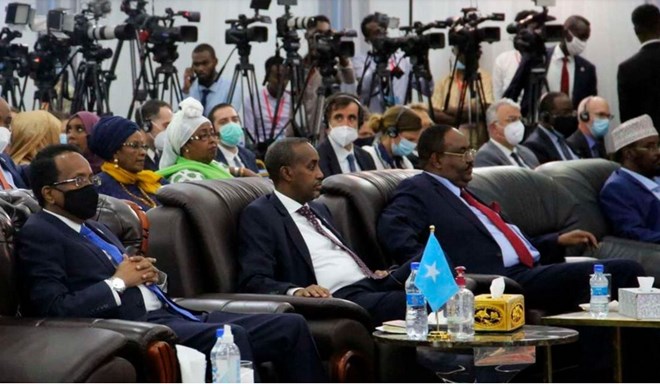
Saturday July 31, 2021

As Somalia prepares for parliamentary and presidential elections, federalism remains unresolved.
The federal system was adopted in 2004 under the Transitional Federal Charter, but the central government and the federal member states are yet to agree on fiscal resource sharing.
Experts say that clarifying the structure of fiscal federalism is key for Somalia’s federal state reconstruction, the debt relief process, economic reforms, increasing domestic revenue mobilisation, and the provision of government services to citizens.
In a report released on July 29, Somalia Public Agenda, a non-profit public policy and administration research organisation based in Mogadishu, warns that resource sharing will remain a bone of contention even after the elections because the provisional constitution does not stipulate how fiscal powers are distributed, or how revenues and natural resources are shared among the centre, the federal states, and local governments.
The report, Fiscal Federalism in Somalia: The Constitutional Ambiguity, by Farhan Isak Yusuf, a researcher and Mahad Wasuge, executive director of Somali Public Agenda, says social services will continue to suffer since only Jubbaland and Puntland have resources like ports that generate revenue.
The remaining states — South West, Galmudug, and Hirshabelle — get $150,000 each per month for social services. The central government only finances 38.7 percent of the annual budget and the remainder financed by international donors.
In the face of constant resource disputes, the country in 2016 established the Finance Ministers’ Fiscal Forum to discuss and agree on pressing fiscal federalism issues such as sharing natural resources, revenue sharing, tax harmonisation, and which level of government exclusively raises which taxes.
But the report says this arrangement still lack of trust. Almost none of the five federal states transfers revenue to the centre because they are not sure if the federal government will give back what they see as their fair share.
Second is the legal challenge given that the constitution remains provisional, and does not clarify functional responsibilities, and leaves politicians to address fiscal federalism arrangements.
Third is the lack of institutional capacity to collect revenue. Fourth, insecurity is still a headache as it restricts and tax collection.
Finally, local governments are not part of the fiscal decentralisation and federalism discussions.